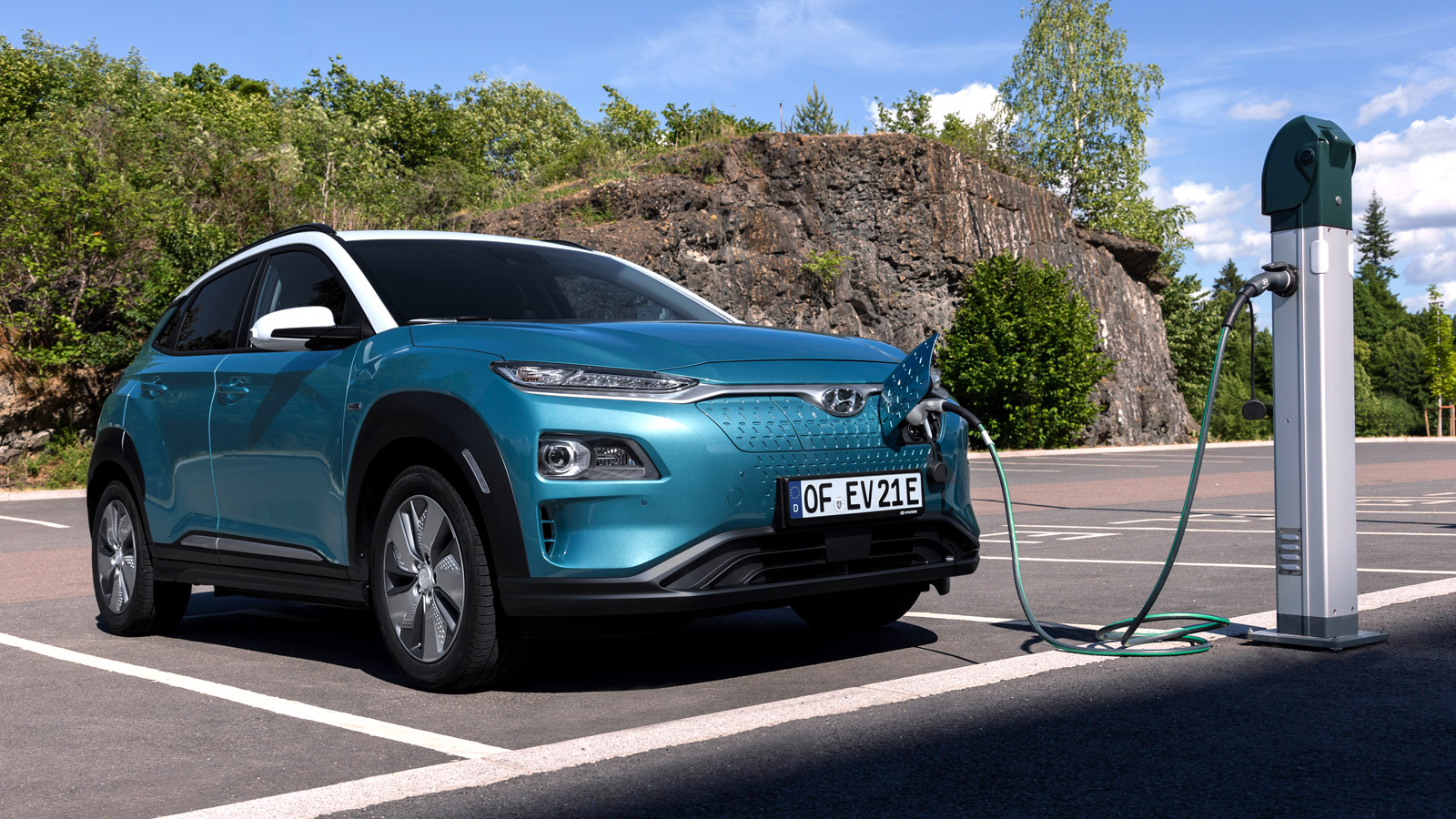Now A Recalled Kona EV Has Caught Fire, And Hyundai Is Facing Questions
Late last year Hyundai issued a recall for the Kona Electric, affecting some 77,000 vehicles globally after 16 of them caught fire. Over the weekend, yet another Kona EV suffered a similar fate in South Korea while charging at a station in Daegu, Reuters reported Monday. The difference is, this particular car had already been recalled.
The incident is now under investigation by the Korea Transportation Safety Authority, according to the Korea Herald. Normally, the country's National Forensic Service would be deployed to look into matters such as these, however, the Kona EV's troubled history, coupled with the fact this one went up in flames even after supposed repair, has escalated the issue. The Transportation Safety Authority will also assess "the adequacy of the recall," an official told Reuters.
Rather than replacing batteries as part of the recall, Hyundai only mandates flashing new software onto the affected vehicles, according to Reuters. Some cars do receive new batteries if an inspection deems it necessary, though this one apparently returned to the road with only software changes.
The recalled Kona EVs were manufactured between 2017 and 2020, and it's worth noting the car didn't arrive in U.S. showrooms until 2019. In November, General Motors recalled Chevrolet Bolts built between 2017 and 2019 after five of them caught fire when their batteries were nearly or fully charged. GM told Automotive News at the time that it believed the fires were "possibly" related to defective batteries manufactured by LG Chem, since rebranded LG Energy Solution. As it happens, LG Energy Solution also supplies batteries to Hyundai for the Kona EV.
In the Bolt's case, GM told owners to engage certain modes or limit the car's full charging capacity immediately to reduce risk; it also provided a software update to service departments while promising another, more comprehensive update in 2021. So far, GM hasn't resorted to widespread battery replacement for the Bolt, opting to try to mitigate the problem via code, just as Hyundai is doing.
Can you "fix" a defective battery pack with better software? Based on Hyundai's efforts so far, it seems unlikely, though automakers are going to try anyway. In the meantime, customers who are desperate to move on from both vehicles are finding that impossible to do without adequate fixes in place. Hyundai is facing a class-action lawsuit from Kona EV owners for that very reason in South Korea, citing depreciation values in the wake of the recall in addition to safety concerns. Bolt owners in the U.S. filed a similar suit in December.
At the moment, the number of incidents reported compared to both vehicles' overall production volume is low, and the National Highway Traffic Safety Administration published findings back in 2017 that the risk of fires in EVs is anticipated to be "somewhat comparable to or perhaps slightly less" than in gasoline-powered cars. However, electrical fires are much harder to fight and require much more water to douse, so this isn't a case of baseless panic, either.
